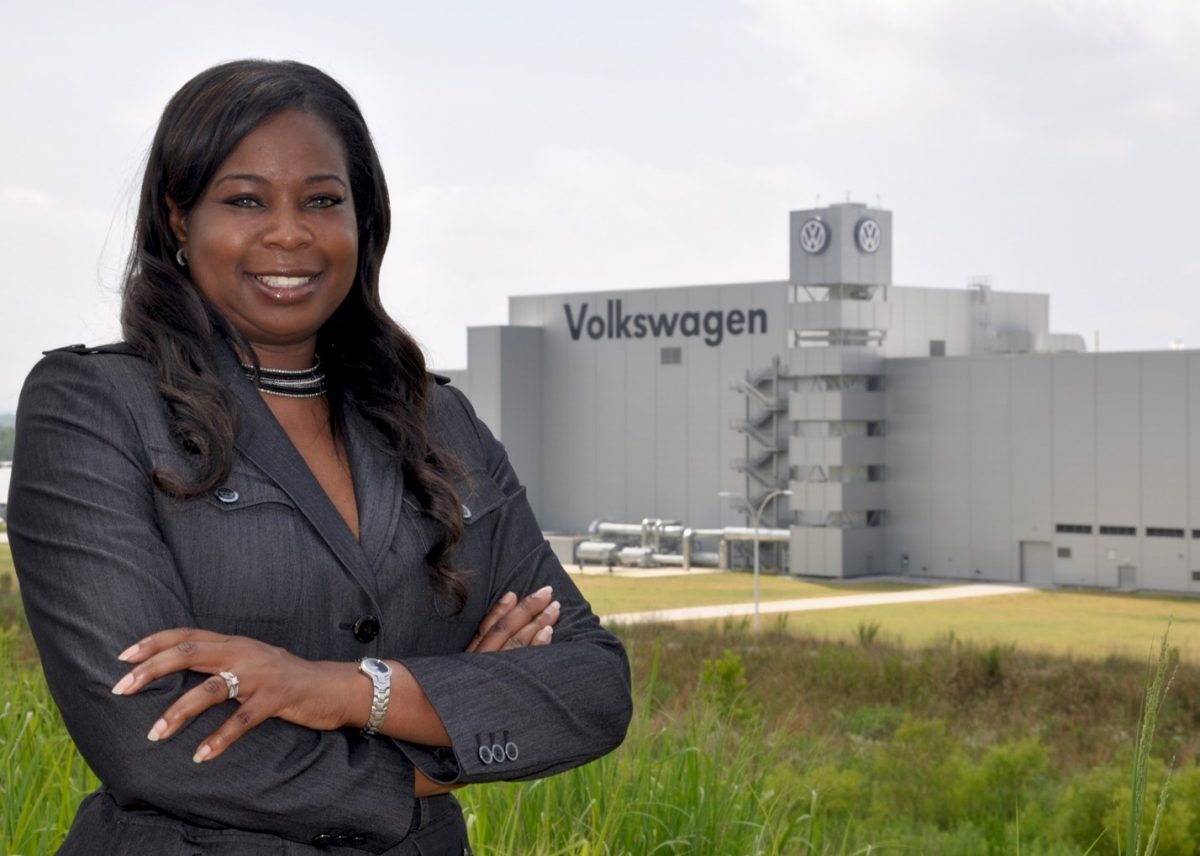
Automakers may be fierce competitors on the showroom floors and production lines, but in one critical area they share a common goal: working to equip diverse suppliers to help build the future of electric mobility and autonomous cars.
The Automotive Industry Group (AIG)—a coalition of industry competitors including Volkswagen Group of America—works to develop and train suppliers in advanced technologies so that minority-, women-, veteran- and LGBTQ+-owned businesses have a chance to compete.
“A unique challenge with diverse suppliers is helping them perform at the level needed to compete with the current and actual needs of the automotive industry today,” said Volkswagen Manager of Supplier Diversity Edkedsha “KeeKee” Mathis. “Technology is a massive area in which minority and diverse suppliers need to build their competencies, so it’s more difficult to award that type of business to those we’ve committed to working with. As technologies evolve and change, my role is to make them aware of our existing needs and to help develop their capabilities to better [align] with the future of the industry.”
When Mathis stepped into her role with Volkswagen in 2013, she focused not only on significantly contributing her time to the AIG, but also on providing one-on-one mentorship to help Volkswagen’s existing diverse supply base streamline operations to enhance their competitiveness, and adopt development plans to help them hone in on their strengths and sharpen their areas of weakness.

For many diverse suppliers in the industry, the biggest barrier to being awarded work by Fortune 500 companies is access. Smaller minority-owned businesses do not typically have someone who can walk them through an RFQ (request for quotation) process. Without that insider knowledge, they can also lag in developing the right technologies and skillsets needed to help meet changing industry demands.
“If you are not able to provide certain technologies or meet scopes in their entirety without deviation, you are simply not going to be competitive in these spaces,” said Mathis.
For some of the businesses Mathis works with, adjustments to marketing, inventory and structural operations are all that is needed to help move the needle. With Wingard Quality Supply, LLC, for example, one of the target areas was in finding ways for the second-generation minority-owned business to better market the company to other original equipment manufacturers (OEMs). From a thorough website review, to creating speaking engagements for company president James Wingard, Mathis worked with the company in helping to provide opportunities to engage with other OEMs and business leaders.
“KeeKee was really pushing me to become a company that is visible, making me stand up in front of audiences to talk about our business,” said Wingard, whose tire and wheel assembly business has been a supplier with Volkswagen since 2010. “It was all out of my comfort zone, but it helped open the door for me to explore new business opportunities.”

An integral part of Volkswagen’s acquisition process is for Mathis to sit down with suppliers one-on-one, both to provide education about the industry and to give them feedback, especially if they did not win a particular RFQ. Her goal is not only to help each business identify their strengths, but to point out their weaknesses so they can both better align themselves with Volkswagen for the next RFQ, or with any Fortune 500 company.
For BarPellam, Inc.’s CEO David Barfield, Mathis has been an invaluable coach as well as an advocate in helping the business expand its footprint within Volkswagen.
“In no way has our long-term relationship resulted in her being easier on us; in certain instances, its resulted in her being tougher on us—in a good way—because she really wants us to perform well and therefore she challenges us and certainly holds us accountable,” said Barfield, who manages the staffing and recruiting company. “KeeKee is very direct, but she always comes about it in a spirit of partnership and really caring for BarPellam as one of her suppliers. We are a better company because of her support, her mentorship, her guidance—and quite honestly, her tough love.”
For Mathis, supplier diversity is not just about short-term contracts, but long-term invested partnerships, so that as Volkswagen grows, these underutilized minority and diverse companies can grow alongside.
“I believe it’s incumbent on Corporate America to help ensure that diverse firms are invited to participate in the bidding process, and that ultimately the supply base reflects the nature of our country’s changing demographics,” said Barfield. “I just think it is critical that responsible companies like Volkswagen continue to seek partnerships with leading minority and women-owned firms to ensure all of its customers are represented in the supply chain.”
“For me, programs they come and go with an organization,” Mathis said. “This is not a program—this is a part of our process; it’s embedded in our policies, procedures and guidelines and it is here to stay.”
